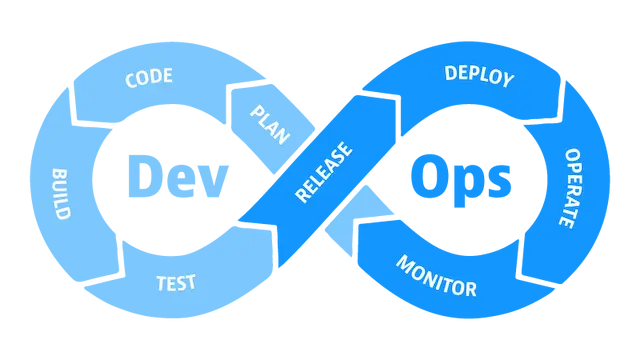
The best DevOps certification course from Nashik helps you to master the set of practices, tools and cultural philosophies in order to deliver the application and services faster than the conventional software development processes and helps you to attract high paying desired jobs.
The DevOps certification course for students is designed by experts for in-depth learning of concepts and is divided into 21 different modules.. The first module, DevOps-source code management-GIT explains the version control system, IT/GITHUB & GITHUB desktop, basic concepts of installation, configuration, basic commands, branches and repositories. The module for DevOps-source code management-BitBucket describes BitBucket and its usage. It has topics like creation of Repos, branches and pipelines along with branching, cloning and pull request.
The next module explains jenkins, its installation and configuration. Further, unfolds node, setting-up node and configure it. Other topics like Jobs/plugins, creating application builds, cloning the sample project, creating the Jenkins job and configuring GIT Repo, compiling in Jenkins, browsing the workspace in Jenkins, App packaging In Jenkins and cleaning up past builds are covered in this module. This module is describes source tree, its usage, use cases, cloning and pull request. The next module Apache Tomcat,set-up, installation, configuration & running and Jenkins integration of Apache Tomcat.
This module defines AWS code commit and its usage. It teaches you the creation of IAM code commit users along with explaining SSH/HTTPS usage and Code commit clone/push. The module for DevOps- artifactory-JFROG artifactory explains, what is artifactory? Uses cases and helps you to learn installation, setup and using an artifactory. This module comprehensively covers topics like automated build process, Maven, integrated Maven build, structures, dependencies, repositories and plugins of Maven; along with describing what packer is, why do we use it & installation and running packer to create AWS AMI images.
The module starts with explaining AWS Code Build, how to use it and creating project using Code Build; and it is followed by a module which explains use cases of terraform, installation & usage, launching infra using Terraform, creating and destroying infra. The module of DevOps configuration management tool- Chef, explains what Chef is, what are Chef Servers, Chef Workstation, Chef-Repo, Chef-Client, servers & nodes, what is the cookbook and the knife, roles, bootstrapping of nodes, role, extending Chef, Knife plugins.
This module has chapters like what Cloud formation is, how do we use it, stack /template and cloud formation summary. The next one explains the basics of Elastic Beanstalk , its usage and environment provisioning. The module for DevOps-configuration management tool- Ansible consists of 7 sub-topics, namely, introduction to Ansible, installing Ansible, testing with first Ansible, Ansible configuration basics, Plays & Playbooks’ basics and usage of Playbooks’ from basics to advanced. The sixteenth module has 9 chapters, that is, introduction to AWS Code deploy, components to AWS Code deploy, AppSpec file configuration, deployment using Code Deploy; What Code Pipeline is, using of cases of Code Pipeline, Configuring Test Builds, performing Test Builds and pushing app to production.
Introduction to AWS Lambda, benefits of AWS lambda, its functions and triggers are covered in this module; followed by the module in which you will learn Docker, installing it on Windows and Linux. It also has a description of Docker pull, build, and run, working with images, container life cycle, Dockerfile, pushing app to GitHub and configuring Test Builds This module has topics like introduction to Serverless computing, Serverless with AWS Lambda, Real- time applications with AWS Lambda and explains triggering Lambda with S3 Bucket; the next module, explains Kubernetes and covers topics like Kubernetes architecture, nodes, Pods, Services and deployments, installation of Kops & Kubectl and pushing App to Kubernetes clusters.
The last module DevOps-Continuous Code Inspection-SonarQube acquaints you with basic knowledge of SonarQube, its installation and usage.